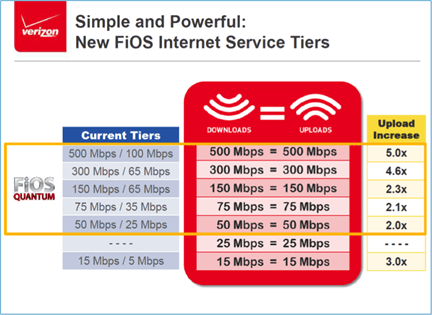
Bright House Networks is leveraging their partnership with the Multimedia over Coax Alliance (MoCA) to bring an end to Wi-Fi dead spots with the introduction of Echo, a scalable in-home Wi-Fi network.
Echo expands the coverage of a traditional in-home wireless router by adding wireless access points in areas where Wi-Fi reception is poor. All a customer needs is a nearby Bright House cable connection. The new service isn’t a traditional wireless repeater. Echo relies on a wired connection between the access point and your cable modem/router using Bright House’s existing coaxial cable inside your home. The result is faster, more reliable Wi-Fi.
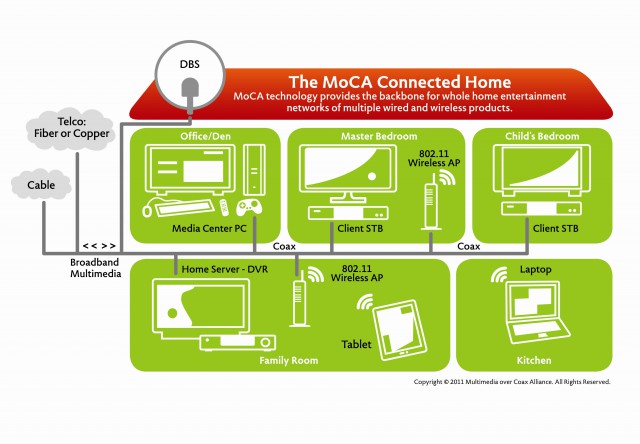 “This is an Advanced Wireless Gateway, a next generation, dual-band modem/router that delivers more range and signal strength,” says Bright House. “From there, Echo Access Points can be used anywhere there is a cable outlet. An access point is a small device that works in conjunction with the modem to extend the home network. Connecting an access point extends the wired network because each access point has two Ethernet ports. Echo turns your existing coaxial cable network into a robust Ethernet network which means that if you have Lightning 90, you should receive speeds up to 90Mbps from the modem and each access point. Connecting an access point also extends the wireless network because each access point is its own Wi-Fi hotspot.”
“This is an Advanced Wireless Gateway, a next generation, dual-band modem/router that delivers more range and signal strength,” says Bright House. “From there, Echo Access Points can be used anywhere there is a cable outlet. An access point is a small device that works in conjunction with the modem to extend the home network. Connecting an access point extends the wired network because each access point has two Ethernet ports. Echo turns your existing coaxial cable network into a robust Ethernet network which means that if you have Lightning 90, you should receive speeds up to 90Mbps from the modem and each access point. Connecting an access point also extends the wireless network because each access point is its own Wi-Fi hotspot.”
MoCA is a compelling technology for customers who do not want multiple cable runs installed in their home or business. Originally designed primarily to transport video from “whole house” master DVR’s to remote set-top boxes and other devices, the technology is evolving into an a comprehensive in-home wired coax network capable of moving high-speed data, video, audio, and other traffic concurrently. Everything moves across the same cable TV wiring already in many homes.
Cable, telephone and satellite companies are contemplating introducing a number of MoCA-enabled features, some similar to Bright House’s Echo. Every cable outlet can potentially be a Wi-Fi hotspot as well as the source for IPTV services like Roku, Apple TV, or even cable television without the need of a traditional set-top box.
Bright House will initially market Echo to less technically proficient customers uncomfortable configuring wireless repeaters or remote access points.
Early reports indicate Bright House will charge a $29.95 mandatory trip charge to install and configure the service. Return visits to add extra access points run $29.95 per visit. Echo’s monthly cost starts at $10 — $6 for the service and $4 for the equipment. There is an extra charge of $3 a month for each access point.
The service was expected to launch this week, starting in Florida.


 Subscribe
Subscribe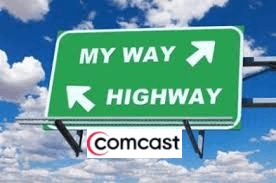 Despite near-automatic apologies from Comcast over an
Despite near-automatic apologies from Comcast over an  Salisbury’s community-owned fiber network has tripled its subscriber base in three years, signing up its 3,000th customer in the community of 33,000 and is already turning a profit.
Salisbury’s community-owned fiber network has tripled its subscriber base in three years, signing up its 3,000th customer in the community of 33,000 and is already turning a profit.
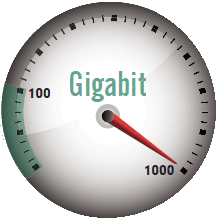 Assuming Comcast doesn’t take over Time Warner Cable and change priorities, the city of Los Angeles is
Assuming Comcast doesn’t take over Time Warner Cable and change priorities, the city of Los Angeles is 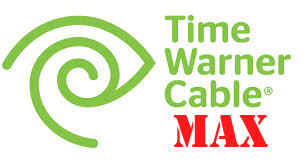 The first Gigasphere pilot test will begin sometime next year. But a Comcast takeover could shift priorities away from offering the kinds of broadband speeds Time Warner is providing under its TWC Maxx upgrade program. Time Warner’s Internet speeds in upgraded areas are now substantially faster and cheaper than what Comcast offers in its service areas. Comcast could decide to retire the broadband upgrade program altogether and settle on offering speeds comparable to what it already sells across much of its national footprint.
The first Gigasphere pilot test will begin sometime next year. But a Comcast takeover could shift priorities away from offering the kinds of broadband speeds Time Warner is providing under its TWC Maxx upgrade program. Time Warner’s Internet speeds in upgraded areas are now substantially faster and cheaper than what Comcast offers in its service areas. Comcast could decide to retire the broadband upgrade program altogether and settle on offering speeds comparable to what it already sells across much of its national footprint. Verizon Communications today announced its FiOS Internet customers will be getting free speed upgrades that match upload and download speeds — the only provider in FiOS markets to offer speed equality.
Verizon Communications today announced its FiOS Internet customers will be getting free speed upgrades that match upload and download speeds — the only provider in FiOS markets to offer speed equality.